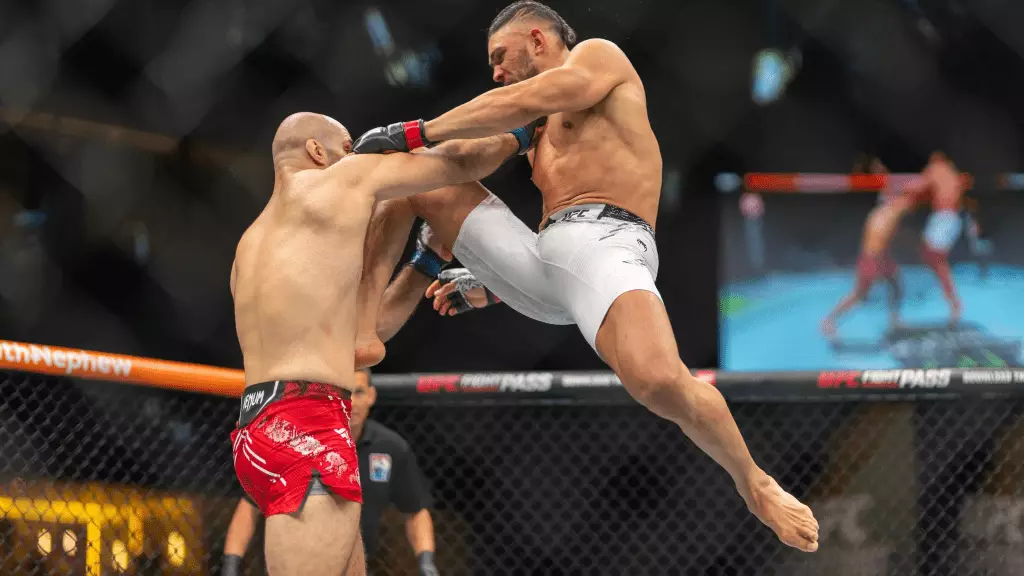As the world of mixed martial arts (MMA) shifts and changes, one fighter continues to face both challenges and opportunities with remarkable tenacity: Johnny Walker. Recently withdrawing from UFC 311 due to a disappointing rib injury, Walker has undergone a transformative journey that encompasses much more than just his physical preparation for a fight. His story exemplifies how personal and professional challenges can intertwine, shaping not only a fighter’s career but also their identity.
The announcement of Walker’s withdrawal from UFC 311 was met with palpable disappointment. For any athlete, missing a fight is about more than just the physical setback; it represents unfulfilled goals and lost opportunities for proving one’s skill in the arena. Walker, who holds a 21-9 record in MMA, faced an emotional rollercoaster as he reconciled his injuries with his ambitions. After a significant life transition from Dublin, Ireland to the United States—which included relocating his family—Walker felt an overwhelming sense of commitment to his training and fight preparation. The seriousness of his rib injury was not just a physical issue but a personal blow, given the extensive effort and resources he had invested in his training camp.
The reality of a “bad injury,” as Walker described it, is particularly harsh in combat sports. Unlike other sports, where injuries can sometimes be manageable or mitigated, a rib injury necessitates substantial rest and rehabilitation. Walker’s reflection on the nature of the injury serves to highlight the unpredictability and fragility of an athlete’s career, which can hinge on just a moment during training. His narrative resonates with many in the sports community who understand that while a fighter’s physical prowess can be honed, external circumstances can quickly alter the trajectory of their careers.
Adjusting to a new training environment is another critical aspect of Walker’s story. He switched from training at SBG in Ireland, under the tutelage of renowned coach John Kavanagh, to a more dynamic environment in the U.S. Although Walker acknowledges Kavanagh’s positive impact on his skillset, he recognizes the limitations posed by having fewer training partners in Ireland. His move to Xtreme Couture, a facility bustling with high-level fighters and coaches, has opened new avenues for his growth as an athlete.
This transition also illustrates the importance of finding the right fit in a training environment. Walker’s experience at SBG—being well-coached but limited in sparring variety—serves as a poignant reminder of how critical it is for fighters to adapt their training based on their specific needs. At Xtreme Couture, Walker benefits from sparring with a diverse range of partners that not only challenge him but allow him to prepare for realistic fight scenarios in a way that desert in his former environment.
Walker’s situation transcends mere physical preparation, delving into the emotional and psychological struggles that accompany a fighter’s life. With the move to the U.S. not only involving a commitment to his career but also to his family—bringing his wife, baby, and dog—he faces the dual pressure of professional ambition and personal responsibility. This balancing act can often take a toll, but it also fosters a deeper sense of purpose.
As he waits for his recovery, which he estimates will take four to six weeks, there’s an air of determination about Walker. He has committed to physical therapy and recovery, voicing his intent to emerge from this setback stronger and more equipped for future challenges. Despite the time spent sidelined, he remains optimistic about returning to the octagon. His experience serves as a testament to resilience—the capacity to not only endure tough situations but to grow from them.
Looking ahead, Johnny Walker aims to return to competitive fighting around April or May. The challenges he has faced—from injury to environment—are deeply interwoven into the upcoming chapter of his career. He mentions the excitement that comes from not only regaining his competitive edge but also leveraging what he has learned in his time adapting to a new life in America. By embracing both his previous training experiences and his current support system, Walker positions himself for greater success in the UFC light heavyweight division.
The journey of Johnny Walker encapsulates the complexities of a fighter’s life, making it evident that the path to success is often fraught with obstacles, both inside and outside the octagon. His resolve, shaped by personal and professional trials, hints at the potential for a remarkable comeback, making Walker a fighter to watch in the future. The story of resilience he offers can inspire both aspiring athletes and fans alike, proving that setbacks can often lead to unprecedented growth and renewed purpose.

